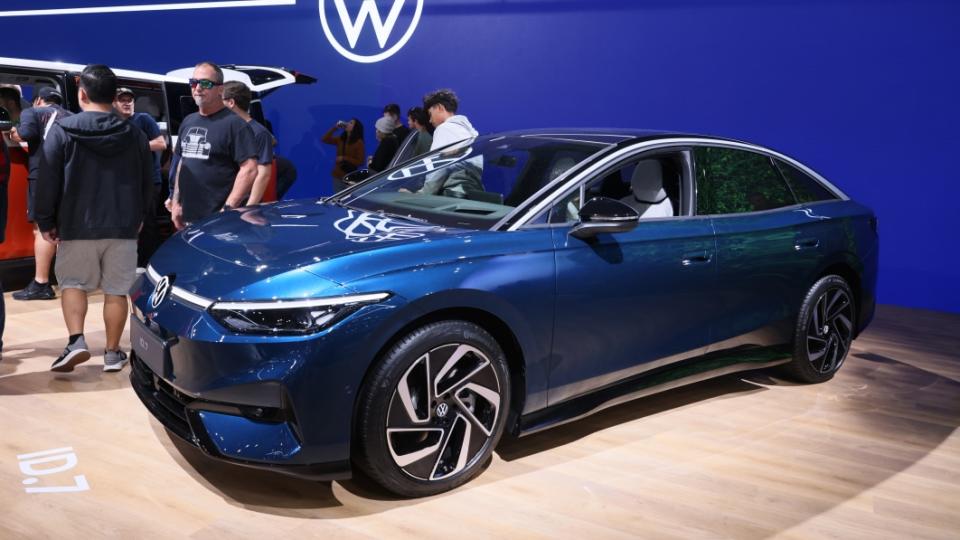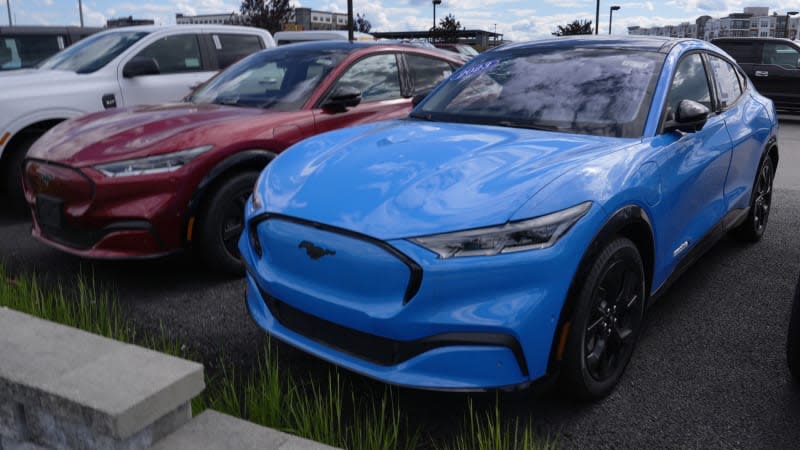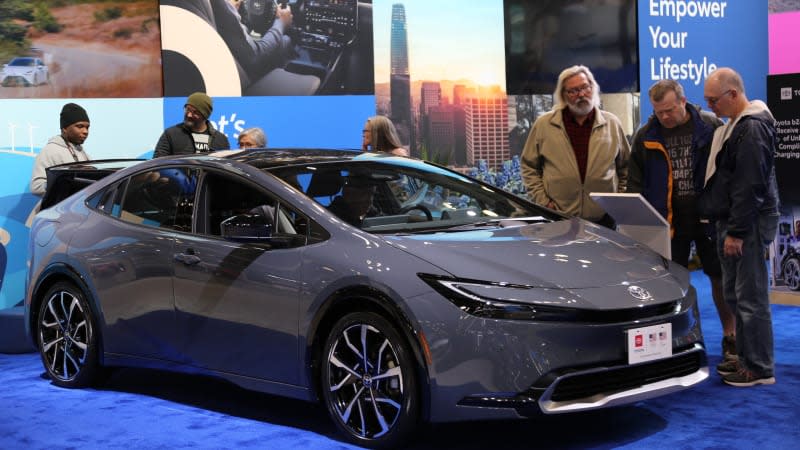Why automakers are backtracking on their ambitious EV game plans

The all‑electric Volkswagen ID.7 is displayed during the 2023 Los Angeles Auto Show at the Los Angeles Convention Center on November 24, 2023 in Los Angeles, California. (Photo by Josh Lefkowitz/Getty Images)
As summer unfolds with spring in the rear-view mirror, sales staff at car dealerships across the country are clearing out inventory to make way for the new 2025 models coming in the fall.
But one car group is still clogging up dealer lots: EVs. The relatively high cost of EVs, range anxiety, and American consumer preference for hybrids are a few factors to blame.
The latest data from S&P Mobility finds that EV inventory at the end of April climbed 5.7% compared to the prior month and rose 105% compared to a year ago. This despite steep discounting for EVs through most of the year.
“It’s tough sledding out there,” Tesla (TSLA) CEO Elon Musk said.
EV-only startups are especially feeling the pain. California-based Fisker just filed for bankruptcy protection on Tuesday. Its demise follows Lordstown Motors' filing only a year ago.
Given that automakers other than Tesla are selling EVs at a loss, it's not surprising car manufacturers across the board have been backtracking. Last week, Ford (F) CFO John Lawler said COVID boosted EV sales. But once those buyers and early adopters were accounted for, the broader group of buyers failed to jump in.

Mainstream buyers are "not willing to put up with some of the other issues that you might have with an EV around range and those types of things,” Lawler told Yahoo Finance. “I think you're going to see the growth continue, [but] it's going be a little bit slower than what we've seen in the past.”
Lawler believes Ford’s second-generation EVs are where the company will see profitability, but those vehicles won’t be coming until late 2025 or 2026 at the earliest. Meanwhile, the company said back in April it was pushing back EV production at its massive BlueOval City EV campus in Tennessee to 2026 from its initial 2025 start date. It also shared that Ford was “retiming” the launch of upcoming EVs.
GM (GM) is plotting a similar strategy. The company has backed away from its initial big EV plans, with CFO Paul Jacobson revealing at a Deutsche Bank conference that GM now expects to produce 200,000 to 250,000 EVs this year, slightly lower than the 200,000 to 300,000 unit plan. GM at one point projected a production run on as many as 400,000 EVs this year.
Still, Jacobson told Yahoo Finance at the conference, “We're picking up significant [EV market] share; we sold over 9,500 EVs in North America last month." The Chevrolet Blazer and Cadillac LYRIQ EV had “really strong gains,” Jacobson added.
The moves by Ford and GM follow similar pivots from Big Three rival Stellantis (STLA), which paused development of a joint venture battery factory with Mercedes (STLA), and instead signed a deal with China’s Leapmotor to build EVs.
Mercedes pivoted hard from its plan to be all-electric by 2030, with the German luxury automaker seeing only 50% of sales being “electrified” — meaning both hybrids and full EVs — by 2030.
Germany’s Volkswagen (VOW3.DE) has also pulled back. For instance, the company canceled the US release of its ID.7 EV sedan last month. Customers “want plug-in hybrids now, including in China and the US,” Volkswagen Passenger Cars CEO Thomas Schäfer said in an interview at a conference in London, according to a Bloomberg report.
How did automakers get the EV timing wrong?


 Yahoo Autos
Yahoo Autos